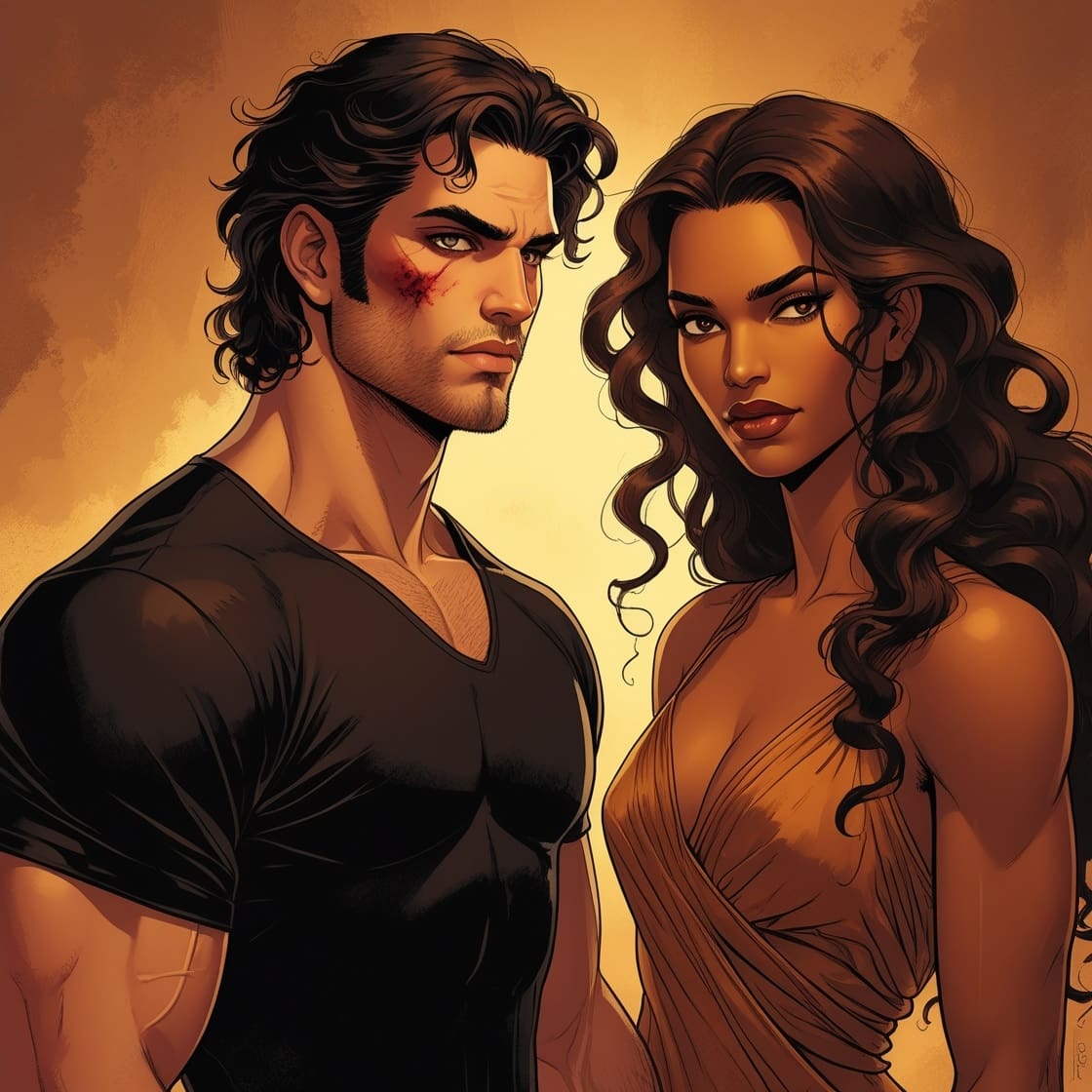
Writing Queer Love Without Rules
Beyond the Triangle
The first time I let myself want two people at once, I thought it was a failure of discipline. A crack in the monogamous armour I’d built over years of practice. The boy I loved wore eyeliner and bruises like language. The woman I loved smelled like sandalwood and wrath. I wanted both, deeply. Not as halves of a whole—but whole, entire, fire-bright in their own right.
I remember thinking: if this were fiction, someone would have to leave. That’s how the story goes, doesn’t it?
But what if it doesn’t?
When the Trope Breaks, the Truth Emerges
We’ve all read the triangle.
The tortured protagonist forced to choose. Team A or Team B. Desire posed as ultimatum. The illusion that love is a zero-sum game.
But queer love—real queer love—refuses that geometry. It’s not a triangle. It’s an ouroboros. A constellation. A pulsing, many-limbed dance of want and witnessing. Especially in polyamorous storytelling, the triangle trope flattens the richness of our lives into a decision tree. Stay or go. Him or her. This or that.
But polyamory isn’t about who wins. It’s about how we love when we stop pretending we’re scarce.
Writing Queer Love Without Rules
There’s something radical about letting the story expand. Letting the characters ache toward each other, not away. I wrote Elias, Alaric, and Nico that way. Not as rivals, but as men entangled by devotion, by power, by hunger. Men who hurt and held each other. Who didn’t always know how—but kept choosing to stay close.
Writing polyamory means unlearning narrative hierarchy. No “primary.” No default. No object of affection passed between others like a prize. It means allowing love to exist as plural and real, without collapse.
And yeah—sometimes it’s messy. Sometimes someone gets scared. Sometimes someone leaves.
But that’s the point. It’s not fantasy because it’s perfect. It’s fantasy because we can finally imagine love not dictated by fear.
Jealousy Isn’t the Villain
When I talk to readers about poly stories, the most common question is, “But what about jealousy?”
It’s in the question like a warning. A suspicion. A sin.
But jealousy isn’t the villain. Jealousy is a teacher. A flashlight in the dark room of your worth. When I’ve felt it—sick in the gut, curled in the corner of a hotel room bed while someone I loved was out loving—I learned to ask: What part of me feels unchosen?
And then to write from that place.
Not to punish the character. Not to punish myself.
But to love more clearly. With more edges and more grace.
When Love Isn’t a Triangle
One of the most liberating moments in my writing life came when I stopped trying to resolve the tension between lovers. I didn’t want a winner. I wanted truth. I wanted heat and risk and emotional safety braided with uncertainty.
And love—queer love, polyamorous love—thrives in that paradox.
Sometimes three people love each other, not evenly, but honestly.
Sometimes someone steps back, and it’s not a loss—it’s a gift.
Sometimes the centre isn’t a person. It’s a shared reverence.
As in His Theirs Enough. As in Yours Theirs Still. Those stories were never about having it all. They were about becoming more by not needing to possess.
That, to me, is the heart of polyamorous fiction: holding what’s true. Not owning it. Not hoarding it.
Just holding. And being held.
The Future of Queer Love Stories
If we write queer love without rules, we don’t lose structure—we gain possibility. We get to shape new archetypes. Not the tortured lover choosing between desire and duty. But the brave one who loves fully. The soft one who asks for more. The honest one who leaves, not because they’re not loved, but because their path is sacred, too.
No more triangles. Let’s write circles. Spirals. Constellations of queer, messy, holy love.
Let’s write the truth.
SEO Title: Writing Queer Love Without Rules in Polyamorous Fiction
Meta Description: Writing queer love without rules in polyamorous fiction means breaking the triangle trope and embracing stories of love that expand beyond possession.
Keyphrase: writing queer love without rules
Slug: writing-queer-love-without-rules
Internal Link Suggestion: On Polyamory (and Not Needing to Be the Only One)
External Link Suggestion: https://www.autostraddle.com/tag/polyamory/
Tags: writing queer love without rules, polyamory, queer storytelling, love triangles, bisexual love, emotional honesty, men who love men, intimacy, chosen family, narrative disruption



